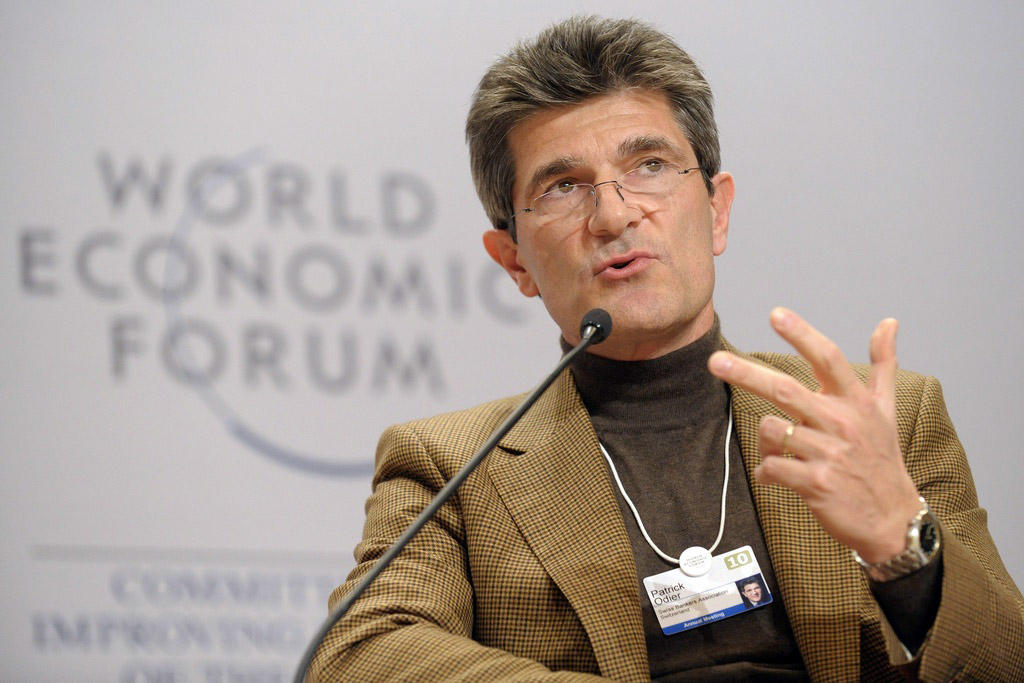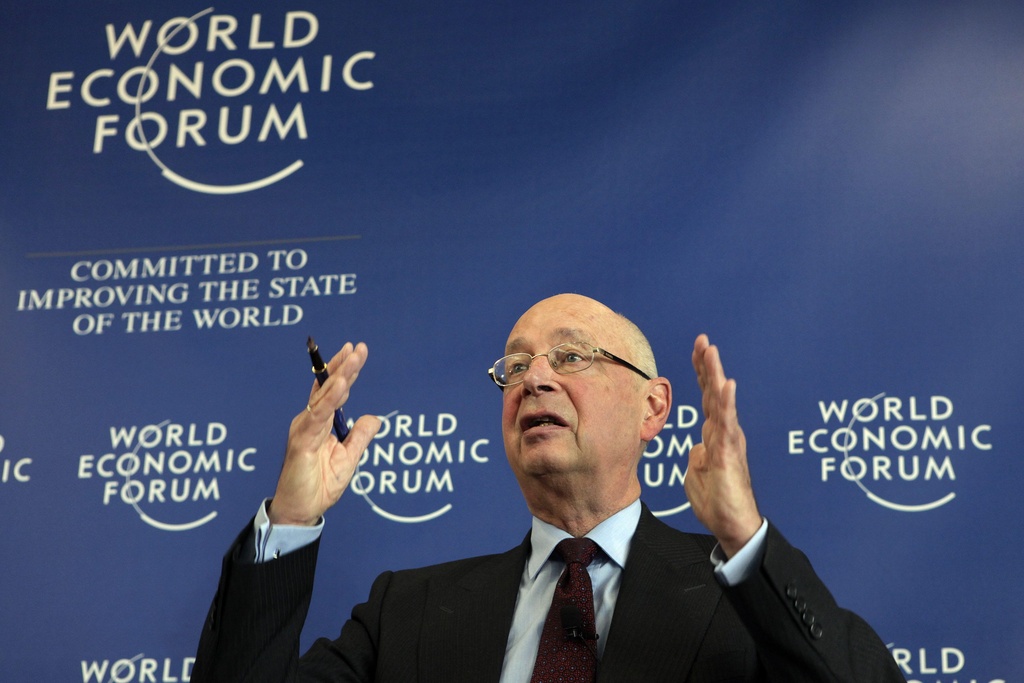Harsh rules “could drive bankers underground”

Heavy-handed financial rules could create a shadow banking system beyond the control of regulators, the head of the Swiss Bankers Association warns swissinfo.ch.
Speaking at the World Economic Forum meeting in Davos, Patrick Odier said a ban on banks betting their own money on the markets (proprietary trading) could lead to some traders taking such activities under the regulatory radar.
He also defended the biggest banks – labelled by some as “too big to fail” – for providing vital cross-border financial services.
United States President Barack Obama outlined the latest regulatory proposals last week. The so-called Volcker Rules, named after former Chairman of the Federal Reserve Paul Volcker, would split up the activities of large banks to protect national economies and the deposits of ordinary account holders.
swissinfo.ch: What is your assessment of the Volcker Rules proposals?
Patrick Odier: The directions proposed by President Obama are very interesting indeed, but some [proposals] would be tricky to implement and execute. This particularly applies to the separation of activities [a ban on proprietary trading and involvement with hedge funds].
We need to make sure that proprietary trading does not become the only point of attention for the management of banks. Offering the ability to diversify across services [engage in multiple business activities] ensures that banks are not at the mercy of only one area during a very difficult time.
Working the proprietary capital of a bank must have the objective of adding value to the customer of the bank and not only to the proprietary trader [in the shape of bonuses].
swissinfo.ch: Could such new rules result in adverse consequences?
P.O.: If regulation focuses too far on specific areas, you run the risk of pushing people outside the regulated area into under-regulated new industries, where it would be much more difficult to control the outcome of these activities.
If I am a very good proprietary trader and I see that it is becoming extremely difficult to do this in a bank, I could join a newly established company outside the scope of banking regulation just to be able to exercise my profession in a flexible way.
There is [an argument for] keeping that activity as close as possible within the scope of the banking sector.
swissinfo.ch: One consequence of such regulation could be to break up larger banks that are considered too big to fail. Is this a sensible objective?
P.O.: Universal banks [those that practise asset management, investment, private and retail banking] have the responsibility of making sure that credit is available beyond domestic borders, so it facilitates the flows of capital worldwide.
Swiss banks have generally applied the principle of universal banking with success, and we should protect that model as long as it is possible to manage it prudently and efficiently.
swissinfo.ch: Could we see foreign banking operations relocating to Switzerland to escape draconian regulations in other parts of the world?
P.O.: I don’t think we would attract institutions for that reason. We would attract the most professional ones because our regulations are so far ahead. We believe that strong, coherent, well-balanced regulations are a competitive advantage.
The focus of regulation should be on strengthening capital requirements [capital reserves to buffer against losses]. The extra Swiss finish [beefed-up rules applied in 2008] added an additional layer of safety of counter-cyclical measures. This is clearly going the right direction.
swissinfo.ch: How important is it to have a level playing field in global regulation?
P.O.: The regulators have developed a much more coherent international dialogue, but it’s normal that it takes time. No institution wants to be treated at a disadvantage, so all major banks expect a level playing field in the rules.
[It is important that] the reasoning behind the basis of capital requirement is applied the same way for us as for the rest of the world. In the case of unwinding [a bankrupt institution that operates in different countries] we need the mechanism to make sure that every country takes its fair share of responsibility.
swissinfo.ch: How is WEF helping to coordinate global regulation?
P.O.: It is very important to be able to develop dialogue with politicians from different countries. It is also important that politicians understand that bankers are not trying to protect what they have been doing [in the past]. It is also important that bankers hear what the public has to say about them.
What I fear is that the public takes it for granted that banks do not know what they are doing – of course they understand. They must communicate that they understand and that they will change.
Matthew Allen in Davos, swissinfo.ch
The financial crisis and consequent bailing out of banks has resulted in a series of regulatory reforms or proposals to curb risk-taking excess and to pay back taxpayers’ money.
Britain and France have both taken a public backlash into account by announcing one-off windfall taxes on bankers’ bonuses. US President Barack Obama has proposed two measures in recent weeks to be scrutinised by politicians.
The first proposal recommended that financial institutions pay into a type of common insurance scheme that would substitute taxpayers’ money in the case of future bailouts. The second plan – known as the Volcker Rules – is aimed at forcing banks that manage the normal accounts of the public to take fewer trading risks.
The regulations would ban such banks from trading their own assets on the markets (proprietary trading) or from having links with hedge funds and private equity firms.
The global financial regulator – the Basel Committee on Banking Supervision – has also proposed measures to beef up the amount of capital banks must put aside for a rainy day.
Switzerland traditionally follows Basel rules with an extra “Swiss finish” to compel banks to hold more capital reserves than the regulations stipulate. In 2008 the Swiss Financial Market Supervisory Authority (Finma) significantly beefed up these requirements, particularly in the case of the two biggest banks, UBS and Credit Suisse.
In addition, Finma introduced binding guidelines from this year to curb excessive bonuses and link such remuneration to long-term targets rather than short-term goals.

In compliance with the JTI standards
More: SWI swissinfo.ch certified by the Journalism Trust Initiative















You can find an overview of ongoing debates with our journalists here . Please join us!
If you want to start a conversation about a topic raised in this article or want to report factual errors, email us at english@swissinfo.ch.